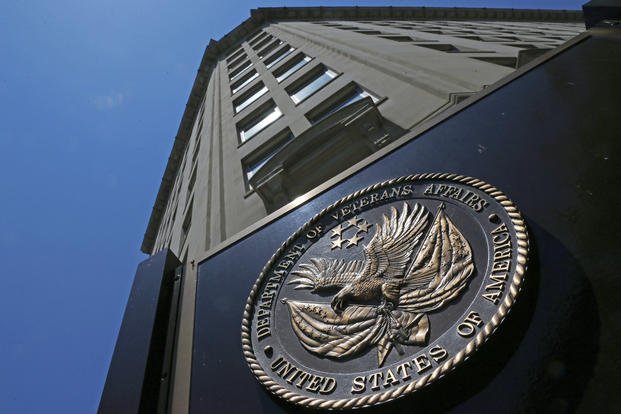The Department of Veterans Affairs said Friday that it has slightly cut wait times for veterans seeking health care, citing an 11% decrease in average wait times for VA primary care and a 7% decrease for mental health care compared to the same time last year.
The shorter waits come even as the VA has enrolled more than 400,000 veterans in health care over the past year, a 30% increase from the previous year, according to Dr. Shereef Elnahal, the VA under secretary for health, who spoke with reporters during a virtual roundtable from the Richmond, Virginia, VA Medical Center.
The VA also hired more than 61,000 new health care workers last year as part of an effort to boost services following the PACT Act, a historic 2022 expansion of VA medical care and disability compensation for veterans sickened by exposure to toxic substances while serving.
Read Next: US Soldier Critically Injured in Noncombat Incident on Gaza Pier
The combination of more health care workers and improved clinic productivity, Elnahal said, are helping the VA "meet that increasing demand for care, all while we're seeing greater demand from our existing base of veterans as they get older and get more chronic conditions and need more care, but also new enrollees coming into the system very intentionally because of the PACT Act."
The average time it takes for a veteran patient to be seen by a VA mental health professional for the first time is now around 17 days, three days under the department's maximum allowed before a patient can access community care. Primary care appointments are averaging a 22-day wait, just exceeding the 20-day limit.
Wait times improved partly because of a VA initiative known as "Access Sprints," which has provided more nighttime and weekend health care access for veterans, and has led to almost 25,000 new patient appointments.
Between October 2023 and April 2024, the VA saw a 19% decrease in the number of new patients waiting for more than 20 days to receive primary care and a 9% decrease in the number of new patients waiting longer than 20 days for mental health care.
VA worker retention rates have increased alongside its robust hiring efforts, Elnahal noted, in part thanks to the VA's push toward critical skills incentive pay for various workers, including human resource personnel and short-staffed medical provider jobs.
The VA was lambasted by lawmakers recently over news that it mismanaged the incentive pay. The VA Office of Inspector General found that 182 senior executives received nearly $11 million in bonuses. Some lawmakers called for Elnahal's removal.
"There were issues that were missed at every layer of the organization," Elnahal acknowledged during the virtual roundtable. "I take responsibility for everything that happens in [the Veterans Health Administration]."
"The most important thing we are doing is focusing on implementing the recommendations of the IG to make sure that this never happens again," Elnahal said, referring to the watchdog report that highlighted the improper bonuses. "And that we get to a much better place on how we determine who receives critical skills incentives."
-- Kelsey Baker is a graduate student at Northwestern's Medill School of Journalism, and a former active-duty Marine. Reach her on X at @KelsBBaker or bakerkelsey@protonmail.com.













